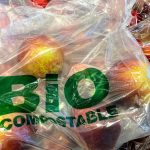Transforming your kitchen into a haven of sustainability may seem daunting, but it's an achievable goal. The journey to a zero-waste lifestyle starts at home, where mindful choices can significantly reduce your environmental footprint. This guide offers practical steps to declutter, repurpose, and rethink your food practices. Discover how easy it is to create a family-friendly kitchen that champions sustainability, preserves resources, and inspires healthier living. Embrace this transformation and contribute meaningfully to a greener planet.
Understanding Zero-Waste Living
Embarking on a zero-waste lifestyle involves embracing sustainability and significantly reducing your environmental impact. At its core, zero-waste living is about minimizing waste production by rethinking consumption habits and opting for reusable or compostable alternatives. This approach not only conserves resources but also fosters a more sustainable future for our planet.
Have you seen this : The Ultimate Guide to Choosing the Best Underfloor Heating Solutions for Your Ceramic Tiled Kitchen
One of the primary areas to focus on is the kitchen, which is often a significant source of waste. By reducing kitchen waste, individuals can make a tangible difference in their overall waste footprint. This can be achieved through strategies such as composting food scraps, using cloth napkins instead of paper, and purchasing groceries in bulk to avoid excess packaging.
The environmental benefits of a zero-waste kitchen are substantial. By cutting down on waste, you contribute to lowering greenhouse gas emissions and reducing landfill overflow. This shift not only supports the health of our ecosystems but also promotes a more sustainable way of life, aligning with the principles of a zero-waste lifestyle.
Also to discover : The Ultimate Guide to Choosing the Best Underfloor Heating Solutions for Your Ceramic Tiled Kitchen
Assessing Your Current Kitchen Waste
Embarking on a zero-waste journey starts with a kitchen waste audit. This process involves thoroughly examining your kitchen habits to identify common sources of waste and evaluate current waste management practices. Begin by collecting and categorizing all waste produced over a week. This will help you pinpoint which items contribute most to your kitchen's waste footprint.
Once you've gathered data, assess the results to identify patterns. Are single-use plastics a recurring issue? Perhaps food spoilage is a significant contributor. Recognizing these patterns is crucial for effective waste reduction.
Next, evaluate your current waste management practices. Are you composting food scraps? Do you have a system for recycling? Understanding these practices helps in identifying areas for improvement. By systematically assessing your kitchen waste, you can make informed decisions to enhance your sustainability efforts.
Practical Steps for a Zero-Waste Kitchen
Embarking on the journey towards a zero-waste kitchen involves adopting sustainable practices and effective waste management strategies. By focusing on decluttering, waste reduction techniques, and sustainable shopping habits, you can significantly minimize your kitchen's environmental impact.
Decluttering and Organizing
Start by decluttering your kitchen to streamline efficiency and reduce waste. Evaluate kitchen items and identify those you seldom use. Consider repurposing or donating these unused items to minimize clutter. Organizing your kitchen with efficiency in mind can further aid in waste reduction. For example, store frequently used items within easy reach and group similar items together. This organization not only saves time but also reduces the likelihood of unnecessary purchases.
Waste Reduction Techniques
Implementing effective waste reduction techniques is crucial. Begin by focusing on reducing food waste through meal planning and proper storage. Consider alternatives to single-use products, such as using beeswax wraps instead of plastic wrap. Composting is another excellent practice to adopt in the kitchen. Composting food scraps not only reduces waste but also enriches soil, promoting a healthier ecosystem.
Sustainable Shopping Habits
Developing sustainable shopping habits is key to maintaining a zero-waste kitchen. Craft a zero-waste shopping list that prioritizes bulk and local foods, reducing packaging waste. When shopping, utilize reusable containers and bags to further cut down on single-use plastics. By making thoughtful choices, you contribute to a more sustainable lifestyle and support the zero-waste movement.
Recipes for a Zero-Waste Kitchen
Embracing a zero-waste lifestyle in the kitchen involves not only minimizing waste but also exploring sustainable cooking practices. A key aspect of this is creating zero-waste recipes that make use of leftover ingredients, ensuring nothing goes to waste.
Utilizing Leftover Ingredients
Transforming leftovers into new dishes is a practical way to reduce food waste. For instance, stale bread can be repurposed into croutons or breadcrumbs, while vegetable scraps can be used to make a flavorful stock. These zero-waste recipes not only help in minimizing waste but also add variety to your meals.
Techniques for Food Preservation
Effective food preservation techniques are essential for a zero-waste kitchen. Methods such as pickling, fermenting, and freezing can extend the shelf life of produce, preventing spoilage. For example, pickling cucumbers or fermenting cabbage into sauerkraut not only preserves these items but also enhances their nutritional value.
Meal Planning Strategies
Strategic meal planning is crucial in minimizing food waste. By planning meals around ingredients you already have, you can avoid unnecessary purchases and ensure all food is utilized. Consider creating a weekly menu that incorporates versatile ingredients, allowing for flexibility and creativity in your sustainable cooking efforts.
Sustainable Products for Your Kitchen
Transitioning to a zero-waste kitchen involves selecting eco-friendly kitchen products that align with your sustainability goals. These products not only help reduce waste but also promote a healthier environment.
Overview of Essential Zero-Waste Kitchen Products
To create a zero-waste kitchen, consider incorporating essential products such as reusable silicone bags, stainless steel straws, and bamboo utensils. These items replace single-use plastics and contribute to a more sustainable lifestyle. Additionally, investing in compost bins and beeswax wraps can significantly reduce your kitchen waste.
Recommendations for Sustainable Brands
When choosing products, look for sustainable brands known for their commitment to environmental responsibility. Brands like Stasher, known for their reusable silicone bags, and Bambu, offering eco-friendly utensils, are excellent choices. These companies prioritize sustainable materials and ethical production processes, ensuring their products are both durable and environmentally friendly.
How to Choose Eco-Friendly Tools and Utensils
Selecting eco-friendly tools and utensils requires considering materials and longevity. Opt for items made from bamboo, stainless steel, or glass, as these materials are durable and biodegradable. Evaluate the product's lifecycle, from production to disposal, to ensure it aligns with zero-waste principles. By choosing wisely, you support a sustainable future while enhancing your kitchen's functionality.
Overcoming Challenges in Zero-Waste Transition
Transitioning to a zero-waste kitchen can seem daunting, yet it is a pivotal step towards achieving sustainable living. Many individuals encounter common zero-waste challenges when attempting to minimise their kitchen's environmental impact. However, with the right strategies, these obstacles can be effectively addressed.
One prevalent challenge is managing the initial investment in sustainable products. While eco-friendly items like reusable bags and stainless steel utensils may have higher upfront costs, they offer long-term savings and environmental benefits. To ease this transition, consider gradually replacing disposable items with sustainable alternatives as they wear out. This approach not only spreads out costs but also allows you to adapt to new habits over time.
Another frequent issue is finding local resources for bulk shopping. Many communities now offer bulk food stores or sections in supermarkets where you can purchase items using your own containers. If such options are unavailable, look for online retailers specialising in sustainable products. It's also helpful to join local zero-waste groups for tips and support on sourcing products and sharing resources.
Some individuals struggle with the time and effort required for kitchen sustainability practices like composting and meal planning. Simplifying these tasks can make them more manageable. For instance, set up a small compost bin in the kitchen for easy access, and dedicate a specific day each week for meal planning. These small adjustments can streamline your routine, making sustainable living more feasible.
Real-life examples of successful kitchen transformations can serve as motivation. Many people have documented their journeys online, showcasing how small, consistent changes can lead to significant reductions in waste. By learning from others' experiences, you can find inspiration and practical solutions tailored to your unique situation.
Visual Aids and Resources
Understanding the principles of zero-waste living can be significantly enhanced through the use of visual aids. These tools break down complex concepts into digestible pieces, making it easier to grasp and implement sustainable practices. Infographics are particularly effective, as they provide a visual summary of key steps and tips for reducing waste. These graphics can illustrate everything from composting techniques to sustainable shopping habits, offering a quick reference for those new to the zero-waste movement.
Visual guides can also serve as reminders and motivators, helping individuals stay committed to their zero-waste goals. By displaying these aids in prominent places, such as on a refrigerator or in a pantry, you create a constant visual cue to reinforce sustainable habits.
For those seeking to deepen their understanding, a variety of zero-waste resources are available. These include books, online courses, and community workshops, each offering a wealth of information on sustainable living. Engaging with these resources can provide further insights and inspiration, empowering individuals to make informed decisions and foster a more sustainable lifestyle.






